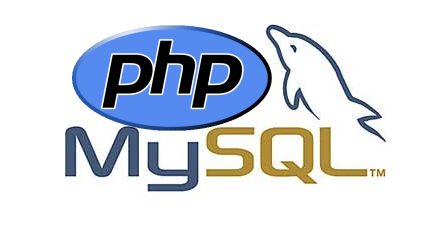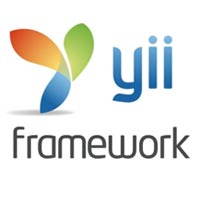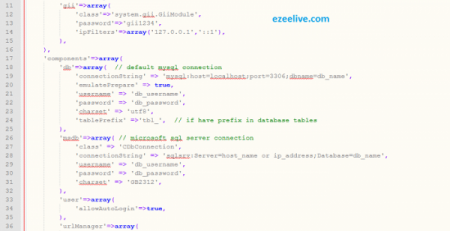What are NoSQL Database Bad Parts in 2025?
NoSQL Database Bad Parts That Could Hurt App in 2025
NoSQL (Interpreted as not only SQL) database is a non-relational and large distributed database system that enables the data for a rapid and ad-hoc organization and analysis of large data volume and disparate its data types.
NoSQL databases sometimes also referred as cloud databases, non-relational databases and Big data databases and their applications.
NoSQL database is generally referred by the Big Data companies to store a large number of databases. But as we know every technology has its good part and bad parts. So, now we will try to see the bad parts of the NoSQL or NoSQL Databases disadvantages or NoSQL Database Bad Parts below:
1. Lack of JSON:
This is first and main of key NoSQL Database bad parts, If you trying to use the NoSQL database to make the project then in that you will face many problems to use JSON.
Solving normalizations and data representation issues increases brain development for the engineers so in this case, engineers try to use the JSON is the development but with NoSQL, you literally can’t use the JSON so this is the first bad part of NoSQL.
2. Backup of Database:
This is second main of key NoSQL Database bad parts, Backups is the drawback in NoSQL(considering MongoDB) like incremental,differential e.t.c. MongoDB has mongodump tool for taking backup and restore but this tool is not yet mature like PhpMyAdmin, MySQL Workbench, Sequel Pro, HeidiSQL, SQLWave in MySQL.
MongoDB Backup
mongodump --host mongodb1.example.net --port 3017 --username user --password pass --out /opt/backup/mongodump-2013-10-24
MongoDB Restore Backup
mongorestore --dbpath <database path> <path to the backup> mongorestore --host mongodb1.example.net --port 3017 --username user --password pass /opt/backup/mongodump-2013-10-24
Mongodump can take backup for an entire server, database or collection, or can use a query to backup just part of a collection
3. Standardization and Open Source:
NoSQL is an open source you can consider it as its advantage or disadvantage. The truth is, there really aren’t many reliable standards for NoSQL databases till date in the market, meaning that no two databases are likely to be created equal in terms of standardizations and performance. Support could end up being spotty when compared to a more traditional database implementation.
4. Lack of Maturity:
Compared to old relational database NoSQL database is still quite immature in front of SQL. This is also reflected also in lack of developers and administrators with the core knowledge and skills in that, in other hand NoSQL may be administrator and developer friendly but it will be nothing if there is no administrator or developer handling tools or understanding to address it. Available GUI mode tools for access the database is not flexibly available in the market.
NoSQL doesn’t have mature functionality like Group, Join (Inner Join, Outer Join, Inner Join, Cross Join), Table and Row Locking (Transaction Processing – Rollback, Rollforward, Deadlocks) etc.
Also, It doesn’t provide functionality or mechanism like Stored Procedures and Triggers as comparing SQL. in MongoDB we can create and store JavaScript function on the server in the special collection called system.js to reuse JavaScript function. The function can use the db.collection.save():
db.system.js.save(
{
_id : "myCustomFunction" ,
value : function (x, y){ return x + y; }
});
5. Consistency:
Because of the way data stored in the NoSQL data consistency will play the vital role to make the data consistent in all way.

NoSQL puts a scalability and performance first but when it comes to a consistency of the data NoSQL doesn’t take much consideration so it makes it little insecure as compared to the relational database.
6. Narrow Focus:
NoSQL database has very narrow focus as compared to the SQL. They are generally made just to store the data and have very less functionality as compared to the SQL like modification with the data, edit and delete all etc. that some functionality you will not get with the NoSQL.
When transactions enter the database, relational databases are still the better choice as compared to others. Further, NoSQL doesn’t really do so well with data backup automatically.
7. Removal of Duplicate Data:
Removing duplicate data means normalization of the data. This mind-blowing data you will get with Relational database i.e SQL but when you come with NoSQL it doesn’t have this feature means when you will try to enter the same query with same data it accepts but with SQL its not like that. So, in SQL it also helps to save the data and the memory storage.
In the Last word, NoSQL databases bad parts have gained the great popularity in last several years, with the popularity of big data and other features of the cloud.
While the technology is great for dealing with many features for dealing with unstructured data and its maintenance. it’s nevertheless limited in a number of another key area.
An administrator must thus consider carefully which type of database best suits their needs before committing to one implementation or the other for the software and its needs– the wrong choice could have disastrous consequences software.
Conclusion: Understanding NoSQL Database Bad Parts in 2025
In 2025, it’s more important than ever to understand the NoSQL Database bad parts before making architectural decisions. While NoSQL databases provide great flexibility, scalability, and performance for certain workloads, they also come with trade-offs. Issues like eventual consistency, limited querying capabilities, poor support for complex transactions, and increased developer overhead can create serious challenges if not properly managed.
By recognizing the NoSQL Database bad parts, developers and teams can make more informed choices—whether that means optimizing how they use NoSQL or choosing a more suitable data solution altogether. The key is to align your database choice with your app’s actual needs, not just the latest trends.









Comments (3)
I don’t undertand why there is a need to compare NoSQL databases with relational databases. It is the traditional apples vs oranges. They both have their place in an architecture and the choice is about the best fit for your requirements.
@Kim, sometime comparison require to decide what database require for upcoming project, and which one is fits in requirement.
Instead of saying comparison I think you should term it as “State of NoSQL database technologies” for year 2014(at this point of time). SQL systems have been here from 1980’s and took so much time to mature!.